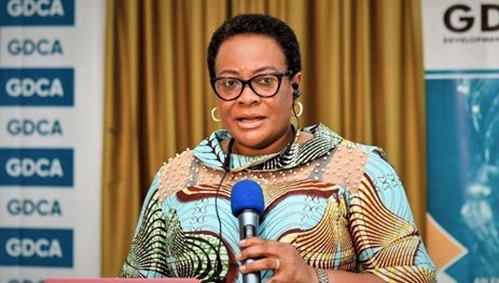
GII calls for effective use of land, spatial policies ...To curb corruption
The scarcity of resources such as land and housing, due to the growing population in urban areas, is breeding opportunities for extortion and unethical practices in the land administration ecosystem.
However, stakeholders could help curb and prevent corrupt practices in the land administration space of they use existing land administration and spatial planning policies effectively.
The Executive Director of the Ghana Integrity Initiative (GII), Mary Awelana Addah, who made this observation, explained that the effective implementation of land and spatial policies would create sustainable urban development that provided the framework for the provision of public services, equitable access to infrastructure, and the creation of liveable cities
“Together, we can shape the future of urbanisation in Ghana, ensuring that our cities are not just engines of progress but beacons of prosperity and fairness”, she said.
Mrs Addah was speaking at an orientation workshop in Accra for Spatial Planning Committee(SPC), and Technical sub Committees in selected metropolitan, municipal and district assemblies (MMDAs) in the Ashanti Region.
Workshop
The training was aimed at building the capacity of SPC and TSC members who are key stakeholders in spatial planning and management to promote openness, accountability, and ethical standards.
Organised by the GII and Land Use and Spatial Planning Authority (LUSPA), it was also to improve the knowledge, skills and competencies of SPCs and TSCs in their spatial planning functions.
The participants were also taken through the intricacies of the Land Use and Spatial Planning Act 2016 (Act 924) and LI 2384 to explore the roles and responsibilities of SPCs and TSCs and discuss the significance and scope of land use and spatial planning services.
Act
The Greater Accra Regional Coordinating Director, Lilian Baeka, emphasised the critical role of Spatial Planning Committees and Technical sub-Committees in district assemblies concerning land use and spatial planning practices.
She said the effectiveness of land use planning and permitting directly impact various aspects such as district organisation, environmental sanitation, health, safety, food security, revenue mobilisation, and investment opportunities.
Unfortunately, Mrs Baeka said, many assemblies primarily viewed permitting as a means of revenue collection, neglecting other essential components of spatial planning and permitting systems.
Thus to address these issues, the Land Use and Spatial Planning Act 2016 (Act 925) and the Land Use and Spatial Planning Regulations 2019 (L.I. 2384) were established to streamline the spatial planning and human settlements management functions at district assemblies.
Championing good governance
The Project Coordinator for the Land and Corruption Africa II Project, Michael Okai, said the workshop was established under the project which was aimed at enhancing the quality of life and empowered stakeholders to champion good governance and combat corruption in land sales and acquisitions.
Additionally, it would enhance the capabilities, knowledge, and skills of Spatial and Technical Planning committees.
He further encouraged the public to report any instances of corruption to the Advocacy and Legal Advice Centre of GII for thorough investigation and necessary action.
